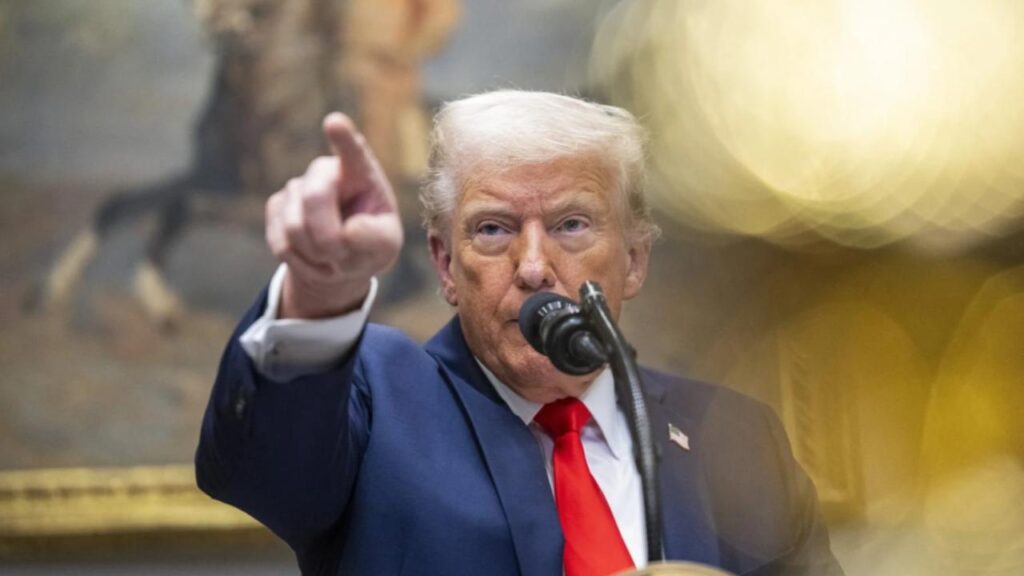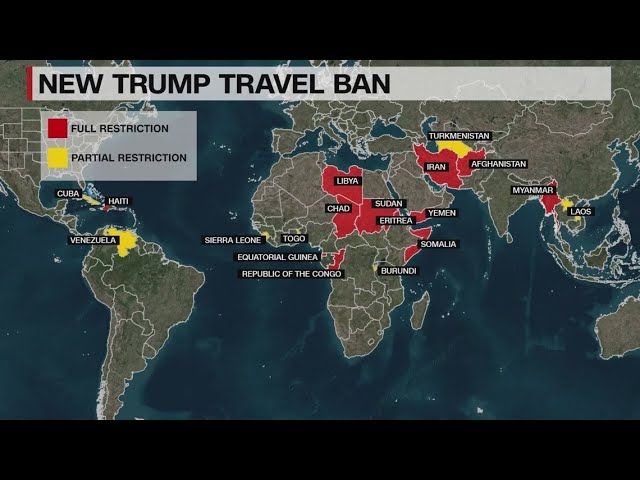Donald Trump is reviving and magnifying his controversial travel restrictions once again—this time with plans to dramatically expand the travel ban. If enacted, citizens of up to 36 additional countries—many long-time U.S. partners—could face sweeping travel and visa limits. Here’s what readers need to know and why it matters.

Trump’s Shocking New Travel Ban Expansion
| Insight | Context |
|---|---|
| 36 countries under review | State Department memo flags 36 more nations—25 African, plus Caribbean, Central Asian, and Pacific states |
| 60-day compliance window | Countries must meet new identity-document and visa-overstay benchmarks or face restrictions |
| Immediate effects | Earlier June proclamation already enacted full bans on 12 countries, partial on 7 |
I’ve covered immigration policy for years, and this expansion marks one of the boldest moves from Trump’s second term. The administration is flexing wide executive power under Section 212(f) but pushing national security boundaries into a political and legal minefield. International backlash and court interference could reshape or even roll back these measures. Stay tuned—August could be a turning point.
What’s Already in Effect
On June 4, 2025, Trump signed a proclamation blocking entry from 12 countries—including Afghanistan, Iran, Libya, Chad, and Yemen—and placing strict visa limits on another seven, effective June 9.
Immigration officials have noted heightened screenings at U.S. airports, though travelers with valid visas are still entering—albeit under increased scrutiny.
At airports like LAX and in cities including Houston, local officials say operations haven’t massively disrupted, despite protests and political backlash in states like California.
What the Memo Reveals
A State Department memo, signed by Secretary of State Marco Rubio, warns that 36 countries—among them U.S. allies like Egypt, Djibouti, Tanzania, Zimbabwe, Dominica, Saint Lucia, and Bhutan—could be next on the chopping block.
These nations have up to 60 days to show proof of reliable ID systems, cooperation on visa overstays, and willingness to accept deportees. Failure to comply may trigger full or partial bans.
Why This Matters
- U.S. national security policy
The Trump White House argues this is essential to protect against “foreign terrorists” and visa overstays that strain border agencies. - International backlash
Critics—including African Union members—label it xenophobic, pointing out that Egypt was involved in the terror attack justification yet isn’t banned. Some targeted countries, like Chad, have already halted visas to American citizens in retaliation. - Legal precedent
Trump is leaning on Section 212(f) of the Immigration and Nationality Act—a power previously challenged but upheld during his first term—to justify massive restrictions on entire nationalities.

Political & Social Fallout
Democratic lawmakers call the expansion “unconstitutional,” while immigrant-advocacy groups decry it as discriminatory.
Cities like Los Angeles and San Francisco are bracing for protests—already underway—over escalating enforcement actions, including federal National Guard deployments.
Some analysts argue Trump learned from his early-term rollout and is aiming for a legally hardened version. Yet, scholars still expect “serious judicial scrutiny” .
What Comes Next?
- 60-day clock ticking: If countries don’t meet benchmarks by mid-August, expect bans.
- Legal challenges: Civil-rights groups have flagged potential lawsuits—some lawsuits may emerge imminently.
- Diplomatic ripple effects: Visa suspensions by affected countries could strain cooperation on trade, military coordination, and global summits.
FAQs
Who would be added next?
An initial list includes 25 African nations—Egypt, Djibouti, Tanzania, Zimbabwe among them—as well as Caribbean, Central Asian, and Pacific countries being evaluated.
Are U.S. citizens affected?
No. This policy affects only citizens of listed foreign nations. U.S. passport holders remain unaffected.
Can courts stop this?
Yes. Courts previously upheld travel bans in 2018, but Trump’s broader second-term version may invite tougher scrutiny. Legal experts anticipate multiple lawsuits.






